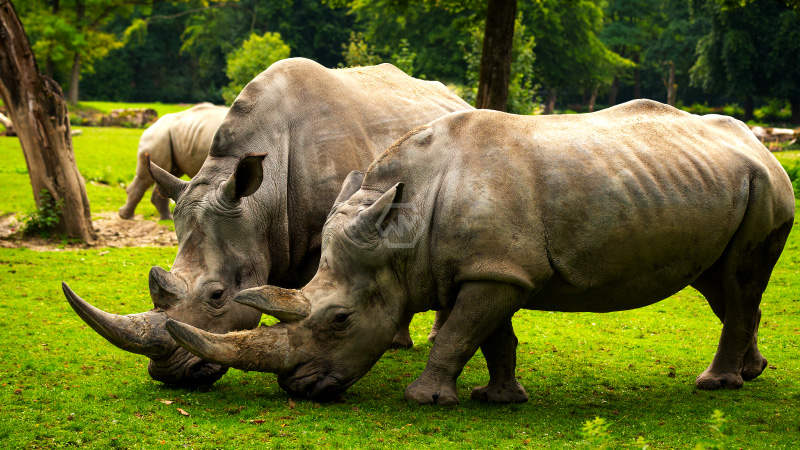- The largest rhino farm in the world is now owned by African Parks.
- The purchase is essential for preserving the rhino population, which is in danger of extinction.
- About 15% of the world’s remaining wild southern white rhino population is now found at the “Platinum Rhino” site.
The largest rhino farm in the world is now owned by African Parks, a well-known non-governmental organization, and is situated in South Africa.
The vast farm dubbed the “Platinum Rhino” location, covers 7,800 hectares and is home to about 2,000 rhinoceroses at the moment.
Rhino farm
The purchase is essential for preserving the rhino population, which is in danger of extinction. Poaching has long been a problem in South Africa, which is home to approximately 80% of the rhinos in the world.
The desire for rhino horns for traditional Asian medicine is a major contributing factor. Only somewhat fewer than the year before, 448 of these gorgeous animals were poached in different parts of the nation last year. It persists despite stepped-up protective measures in areas like Kruger.
The rhino farm came up for auction earlier this year and had previously belonged to 81-year-old South African conservationist John Hume. Hume has stated a wish to find a billionaire buyer who would be able to carry on his charitable work.
He oversaw the preservation of the second-largest land mammal in the world with investments totaling over $150 million. The bulk of the farm’s high costs went toward surveillance and security to dissuade poachers.
When no viable offers were made, African Parks took over as the new owner. To shield rhinos from increased poaching risks, the NGO works. About 15% of the world’s remaining wild southern white rhino population is now found at the “Platinum Rhino” site.
African Parks, well-known for overseeing 22 protected areas across the continent of Africa, has ambitious ambitions to restore 2,000 southern white rhinos over the course of the following ten years.
Thanks to persistent conservation and breeding efforts, the species, which was once on the verge of extinction in the late 19th century, has achieved a spectacular recovery.
The purchase not only represents an important development in rhino conservation, but it also emphasizes the difficulties being faced in defending these enormous animals against the enduring menace of poaching in South Africa.



